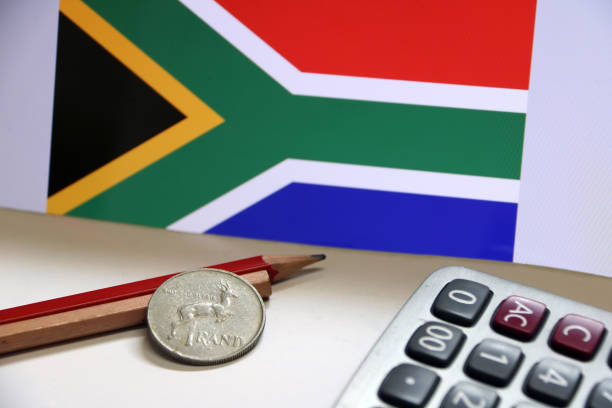Three agencies in the world control the industry of credit rating in Africa: Moody’s, S&P, and Fitch. Together, they hold approximately 95 percent of the credit rating business worldwide.
The credit rating companies are organizations which evaluate a borrower’s creditworthiness on a general basis, as well as in relation to a specific financial obligation or debt. A credit rating is assigned to any company that is seeking to borrow funds either as an individual, corporate entity, a state-owned and provincial agency, or even a sovereign government. Investors use credit ratings to determine the returns and risks. Therefore, the rating is needed when an institution needs to raise funds from the financial markets.
South Africa was the first African country to be awarded a sovereign rating in 1994. Up to date, 32 African countries have been awarded a sovereign rating with at the very least one of the “big three” agencies.
However, policymakers are becoming unsatisfied with their methodology and approach. There are a few complaints that the agencies have been fast to reduce ratings for African countries, but they are slow when they are due for upgrades as they do not accurately reflect the perception of risk and do not communicate effectively with the stakeholders and stakeholders; and that they aren’t independent and objective.
A recent study conducted by The UN found that biases in credit ratings have resulted in the loss of African countries, the sum of a total of US$74.5 billion. This was due to financing opportunities being lost, as well as excess interest on debts of the public sector.
It is, therefore, time to push forward the idea of setting up the African credit ratings agency as a possible solution. China also has its own state-owned rating company, Dagong Global Credit Rating Company. It is believed that the Arab states are requesting to establish their rating agency.
As a principal expert in the African Union on rating agencies, I am able to provide the context this agency would work within and the reasons it is beneficial for business.
African Union official decisions
In March, African Union (AU) ministers of economy and finance officially adopted an official declaration that an organization was required. The AU also formulated a plan for the financial, legal, and structural aspects of the agency. The issue that isn’t yet resolved is how the integrity, reliability, and sustainability of the agency can be ensured. There is the possibility of this being accomplished, as I outline in the following.
The necessity of the establishment of an African Rating agency was repeated by the Chairman of the AU, President Macky Sall of Senegal, as well as the Champion for the AU financial institutions, President Nana Akufo-Addo of Ghana. They have praised the need for it as a crucial move towards integrating the continent. It will also allow AU members to gain access to capital markets and connect the mainland to the global financial markets.
Model for institutions
When the AU creates a new institution, it may be one of two things:
- An institution of the union that is funded by the state members’ contributions or
- A self-funded, autonomous special agent of the association.
Because the credit rating industry requires trust and credibility, The best choice is a specialized agency. Some examples of such are those of the African Export-Import Bank and the Africa Risk Capacity Agency.
As an independent and specialized institution of the AU, The agency could be able to have a variety of shareholders. African governments could have ownership directly or through specifically designated public institutions. Shareholdings could also be held by other smaller rating agencies owned by Africa as well as multilateral finance institutions. African National Financial Institutions.
In the case of financing, the agency will choose to adopt its “issuer-pay” business model. The lenders of debt are able to pay the agency for a rating of its products and entities.
It will be completely paid for by its shareholders as well as through loans from pan-African institutions. Multilateral development banks could require or encourage their clients to have the approval of an African ratings agency. After this is accomplished, it will be able to survive on the revenue it earns through its services.
Like the process in the AU, The African Rating Agency is expected to be established by an agreement that must be signed by at least 10 of the member states.
The business case
There are currently 22 African countries without a rating from one of those “big three” agencies. This will create a market that will be a perfect fit for AU rating agencies.
There is a huge potential in the alternative rating sector, which is unable to afford the expense of maintaining a rating from the “big three.” This is the case for small to medium-sized enterprises, first bond offerings, and the first public offerings. The agency could also offer scores for environmental, social, and governance scores, as well as Foreign direct investments ratings. These services are needed urgently across the continent to support government efforts to aid the development of local financial markets.
With the support of affiliation with the AU, The rating agency can secure significant revenue from the ratings of domestic instruments that align with the goals of the continent.
It has the benefit of knowing the local context of Africa. Therefore, it would be able to give more precise and comprehensive ratings than those of the “big three.”
The way forward
The African Union is forging ahead with plans to create the first African rating agency that will complement the three main international agencies and aid in the development of local financial markets across Africa. Though it will need to overcome obstacles to win the support of investors, there is a massive demand for a different and more dependable credit rating agency in Africa. The success of the institution will depend on formulating a comprehensive approach that is tailored to the African context and a team of resident analysts who are aware of the African context’s dynamic.




